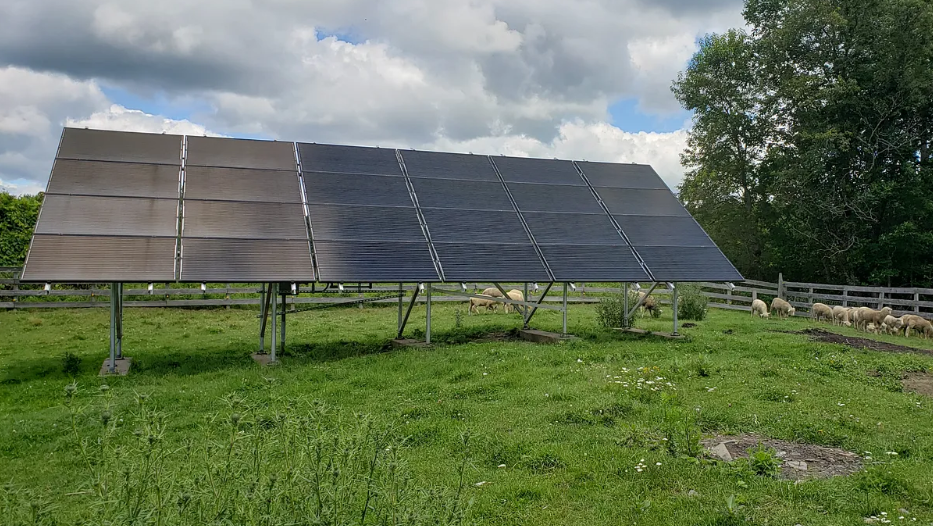Federal officials are reevaluating the security risks posed by Chinese-manufactured components found in solar power equipment after discovering undocumented communication devices capable of compromising the U.S. energy infrastructure, according to a new report from Reuters.
The devices are installed inside Chinese-made inverters, which convert solar energy into electricity. They transform the DC current that the panels generate into AC current.
Inverters are indispensable for moving solar power across the power grid. China makes more than half of the world’s inverters.
Experts, including the former Director of the National Security Agency, warn that these devices could be used to bypass cybersecurity protections, remotely manipulate grid-connected equipment, and potentially trigger blackouts across parts of the country.
Vermont highly reliant on Chinese solar products – And make no mistake, Vermont solar installers are highly reliant on solar products produced in China and other Asian nations. When the Biden administration threatened in 2022 to impose a stiff tariff on panels and modules from China and ‘pass-through’ Indochina nations, the newable industry trade group Renewable Energy Vermont protested vigorously to the U.S. Department of Commerce.
Also assessing the risk is the Vermont Department of Public Service, the arm of state government responsible for regulating energy and communications.
Last night VDC asked Public Service Commissioner Kerrick Johnson if he knew of the Reuters report and the concerns it raises.
Affirmative, Johnson answered. “I have asked my Director of Engineering to run this to ground to determine whether we have a true threat and, if yes, to recommend a strategy for remedying whatever threat it may pose. So, right now we are assessing with urgency and will address with urgency as necessary.”
VDC also contacted the media office of the U.S. Department of Energy this morning and received thi response:
“DOE continually assesses risk associated with emerging technologies for the energy sector. It is critical for those procuring to have a full understanding of the capabilities of the products received,” responded Ben Dietderich, Press Secretary & Chief Spokesperson for the U.S. Department of Energy.
Not the first security threat from Chinese tech – This isn’t the first time Vermont leaders have responded with concern to reported Chinese incursions into Vermont communications systems. In 2019, then-Secretary of Digital Services John Quinn banned communications (not solar-related) software and hardware installed by Huawei and other companies, based on federal threat reports going back to 2017. Vermont was reportedly the first in the nation to do so.
Nor is the Reuters story the first warning grid failure threat posed by Chinese-made inverters. In late March, the consulting firm Forescout reported. More than half of the world’s inverters are made in China. Two of the three big suppliers most susceptible to hacking are Chinese. And more than 20% of the monitoring systems also are Chinese-made.

Report follows nine months of investigation
Over the past nine months, U.S. experts have uncovered so-called “rogue communication devices” embedded in solar inverters and batteries supplied by several Chinese companies. These components — not listed in technical specifications or product documentation — were reportedly detected during disassembly and inspection of renewable energy systems, raising serious concerns among national security and energy officials.
“We know that China believes there is value in placing at least some elements of our core infrastructure at risk of destruction or disruption,” said Mike Rogers, former Director of the National Security Agency, in an interview with Reuters. “The widespread use of Chinese-made inverters may be limiting our options to secure the grid.”
The inverters — essential for converting solar energy into electricity and linking it to the grid — are commonly used across residential, commercial, and utility-scale solar installations. The affected devices were also reportedly found in electric vehicle chargers, battery storage systems, and heat pumps.
According to one source cited in the report, the undocumented components could allow bad actors to circumvent network firewalls, alter operational settings, or even shut down power systems remotely — “effectively creating a built-in way to physically destroy the grid.”
The Department of Energy (DOE) acknowledged the findings and said it is working to evaluate and mitigate risks. A spokesperson told Reuters that while such features may not have been included with malicious intent, it is “critical for those procuring [equipment] to have a full understanding of the capabilities of the products received.”
In response, the DOE said it is expanding efforts to fortify domestic supply chains and ensure greater transparency in imported energy technology. This includes the implementation of Software Bills of Materials (SBOMs) — digital inventories that document all software and hardware components in a system.
The Chinese embassy in Washington pushed back against the report, calling it a politically motivated effort to smear China’s technological advancements.
“We oppose the generalization of national security as a pretext to distort and smear China’s infrastructure achievements,” a spokesperson said.
Concerns over Chinese technology in critical infrastructure are not new. In late 2023, Republican lawmakers warned Duke Energy about using Chinese-made CATL batteries at Camp Lejeune, the largest Marine base in the U.S. Following the inquiry, the utility reportedly disconnected the systems from the grid.
“Chinese companies under the control of the CCP should have no access to U.S. critical infrastructure,” said former Congressman Mike Gallagher and Senator Marco Rubio in a joint statement in February 2024. “Others should take note.”
Federal agencies — including the Department of Homeland Security, the NSA, and the White House — have not publicly commented on the report. However, energy experts expect increased scrutiny of foreign-made energy products and a potential wave of regulatory reforms aimed at securing the power grid against foreign interference.
Authors’ opinions are their own and may not represent those of Grok Media, LLC, GraniteGrok.com, its sponsors, readers, authors, or advertisers.
Agree? Disagree? Submit Op-Eds to steve@granitegrok.com – We want to hear from you, too!
